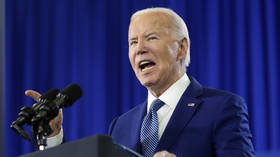Card usage looking at boost as consumers turn to credit
Paying with plastic may have surged in recent years, but analysts say Russians make just 4% of their payments by card, making cash still king.
Just one in ten Russians uses plastic cards according to social studies, and almost half have no cards at all. Yet, in 2008 payments made by plastic cards increased more than 70% year-on-year. Growth has since slowed to 10% due to the economic downturn.
It’s estimated Russians hold 150 million plastic cards. Most of these cards are salary and debit cards. In these terms Russia is actually ahead of other emerging markets. But the use of credit cards is still quite low -just 90 cards per every 1000 people. The same figure in a country like Turkey is 4 times higher.
Mark Rubinstein, Head of Research at Metropol blames the type of credit on offer.
“In the case of credit cards, the so-called revolving credit, the concept is not that clear to the consumer in Russia. The banks which were at first very enthusiastic and very energetic, saw a lot of fraud associated with this product.”
Credit cards were not used enough to cover the risks that banks were taking, forcing some to scale back their plans, and others to axe them completely. Something Kristina Lyadskaya, Analyst at IFD Kapital says the government doesn’t want.
“The government is interested in non-cash payments. It’s a form of stimulating credits, which are currently stalling. There’s recently been a number of government programs and legislative acts. One of the latest initiatives is an electronic card from several banks so that people can pay for government, municipal and bank services.”
There is a direct connection between retailers and plastic cards – money which you can’t see is easier to spend. Consumers love the access to cash.
Comments like, “I prefer cash. Otherwise I can spend endlessly. With cash you only spend what money you’ve taken.” typify the views of many, but others are also wary of the downside.
“I like cards. You don’t have to count money, cause when you start counting you become greedy. First you spend, and then – uh oh -minus.”
Analysts are optimistic – during the past few years plastic cards have made a big jump forward – and they say it won’t be long before Russian consumers are shuffling the cards like shoppers from Europe to the U.S.













